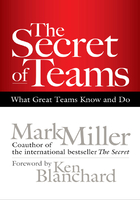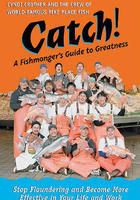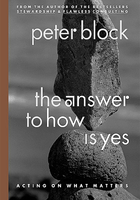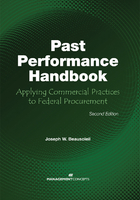A Gas Station Burns in the Forest
Illuminating our Moral Legacy
Every day, all day long, we are presented with choices: simple ones, like “Should I hit the snooze button on my alarm one more time?”; more complex ones, like “How ought I to respond when someone I care for fails to live up to my expectations?” And every day, all day long, we make these choices. We do the best we can with the information and experience we have, and we try to make choices that reflect our deepest values and are consistent with the sort of person we would like to be.
Every choice we make goes into creating who we are. With every move we make—every action, every inaction, every thought that flashes through our minds—more sand trickles from the top of life's hourglass into the bottom. Each grain of sand—every single instant we're alive—builds up to form an afterimage of who we were, where we came from, what we did, and how we loved. This afterimage is our legacy, our gift to the future, the story of our life to be told after we've gone.
How will you be remembered?
When your children, grandchildren, great-grandchildren, and beyond talk about you, what will they say? Who is the person they will see when they examine the afterimage you have left behind?
Think of your own recollections of those who have preceded you: family members, friends, co-workers and colleagues, public figures great and small, the well- and the little-known. What remains of them when they are no longer here?
Possessions are disbursed, projects taken over, vital statistics catalogued away until all that's left of who we were is who we were.
Our character.
Our character is our legacy. And our legacy is ultimately a moral legacy. It is the story of the good and bad things we did to and for other people.
Our bequest to tomorrow will not primarily be monetary or physical or even spiritual; that is, it won't be something beyond this earthly plane. What we will grant to others in our absence is what we have granted to them in our presence: how we have met our obligations to them as family members, lovers, neighbors, colleagues, and fellow human beings.
As we proceed through life, this can be hard to see. The day-today responsibilities of making a living, raising a family, keeping up with the Joneses—not to mention rooting for one's favorite sports team, downloading the latest Internet software, and keeping tabs on the extramarital dalliances of world leaders—incline us to perceive ourselves as individual, autonomous agents whose legacy is more about what we produced than how we lived. While few people really believe that whoever dies with the most toys wins, many of us do live our lives as if our acquisitions will have a more lasting effect than our offerings.
But when we look back upon things, it becomes obvious how much more enduring is what we give than what we take. And we can see better how our legacy—both individually and as a society—is most clearly forged by the moral choices we have made.
It doesn't take a wise old person to recognize this; even a child (even a teenager!) can recognize how enduring our moral legacy really is—and how unforgettable are the choices that lead to its creation.
Here's how I know.
When I was 13, my father, my best friend, and I toured the western United States in a Winnebago motor home. During the three weeks we spent together, I enjoyed all the father and son bonding experiences a kid could hope for. I got to drive our truck on the highway. I drank my first beer straight from the can. I learned that my old man, despite his age, education, and the respect that, as a medical doctor, the world accorded him, was an imperfect human being—just like me.
Yet what I remember most about our journey is a single experience, one that lasted no more than ten minutes but which has stuck with me for some three decades now. I have often wondered why the event implanted itself so deeply in my consciousness, and it is only by considering it in light of a moral legacy that I believe I have found my answer. The event, though short-lived and personal, has come to bear a significance that is both enduring and universal; in short, it has come to represent for me the moral legacy of our time.
The picture of what happened has yellowed with age, but if I focus my mind's eye on the images, they return with the clarity of the mountain air which was their alembic.
About 300 yards outside the entrance to Glacier National Park in Montana are two gas stations, one on either side of the two-lane road. They have been strategically placed so tourists can fill up before entering the park and refill upon leaving. The one on the left is a national brand, the one on the right, a local Mom 'n Pop cut-price mark called Y-Pay-Mor. We, of course, have chosen the national brand—quality, my dad likes to reminds me, is worth a few pennies extra. Besides, the cut-rate places don't take credit cards, and gasoline, for convenience and accounting, is always purchased by credit card—that's just how it's done.
We have completed filling our vehicle's huge 32-gallon tank, have stocked up on peanuts and gum, and paid. With my father behind the wheel, me in the passenger seat, and my best friend lounging at the motor home's kitchen table, we are just beginning to pull out. It is almost dusk and we are in a hurry to find our reserved campsite before it gets dark.
Just as my father angles the Winnebago onto the road, an explosion rocks the gas station across the street. Through the corner of my window, I see a fireball engulf its white clapboard office. I perceive the image of a man inside completely on fire, staggering toward what had been the door, and rolling on the ground, over and over. A woman comes running from the back, pointing at the right side of the building where the restrooms are. She waves her arms at the blazing structure and cries “My baby! My baby is in there!”
By this time, we are on the road and pulling away. I look at my dad. “Did you see that?! Should we stop?”
He is fighting to disbelieve what he only half-saw. The expression on his face is one I've never seen before. His eyes are wide; they look simultaneously young and ancient, somehow. His jaw is clenched and his hands are tight around the steering wheel. He is slightly hunched over, as if urging our vehicle forward. He focuses on the road ahead, hits the brakes as a man in jeans and a T-shirt sprints across in front of us and toward the fire, then accelerates again.
“Dad! There was a guy, I think, on fire! Shouldn't we do something?”
My dad says that he didn't see any guy and even if there was, there's nothing we can do. It's too dangerous and there are other people already on the scene. It's better we should hurry up to the park entrance and tell the rangers.
When we get there, a small crowd has assembled and is looking back at the plume of black smoke that is now funneling upwards. One park ranger is inside the toll booth, talking hurriedly on the phone. A second stands outside with his arms folded, watching the smoke rise, looking bewildered. My father explains to him what has happened. The ranger gratefully acknowledges the information, tells us it will help, and says that we should move inside the park so emergency vehicles can get through.
We drive off toward our campground. I ask my father if we should go back after we get set up.
“We've done the best we could do,” he says. “The right people have been informed. It's under control now.”
That's the last we ever talk about it.
Did we do the right thing? What is the moral legacy of the choice we made? How does it mirror the moral legacy of our time? As I recall what happened and as I consider how our society will be remembered, I see many similarities between this microcosmic memory and the macrocosmic legacy we as a people will leave behind.
I begin by considering the setting, which strikes me as a particularly apt metaphor for this day and age—two gas stations outside a National Park. Note that one of the stations is a corporate franchise; it's a clean, well-lighted place. The other, unsupported by the conglomerate, is a dilapidated shanty. The former serves well-to-do customers, people who tour National Parks in Winnebagos, who pay by credit card, who think that a tidy bathroom and monthly statements of account are worth the extra cost. Customers at the latter pay by cash, they drive beat-up station wagons and camp outside, in tents or under the stars. To them, gas is gas—why pay more?
Tragedy strikes. Tragically, it strikes the less affluent station. Hasn't this been the trend throughout the 20th century, particularly when technology is involved? Bhopal, Chernobyl, the Marshall Islands—time and time again, less-developed places bear the brunt of the technology that sustains more developed ones.
Why did Y-Pay-Mor and not our station explode? Were its owners cutting corners on safety in order to keep up with their corporate-supported competitor across the street? Or were they simply not as well-informed as to the dangers? Perhaps they didn't have the resources—educational or financial—to guarantee a sufficient degree of safety. Or maybe they were just unlucky. Again, it appears to be a peculiar feature of our shared moral legacy that bad things seem to happen to underprivileged people, whether through negligence, conspiracy, or just plain bad luck.
Next, I see us driving away—in a motor home, no less—as a man burns and a mother screams for her child. Conceivably, we could have stopped and done something, but we didn't. I consider all the reasons that modern society doesn't stop and do something and the explanations seem identical.
First, we are afraid. Afraid for ourselves, of course, but even more, we are afraid for our loved ones, and most of all, for our children.
My father has his son next to him; his son's best friend—the child of his own dear friend, a youngster he has known since the boy was born—sits nearby, and across the street, not 50 yards away, a gas station office has exploded. He doesn't know why, or what might happen next. My father is a physician, not an engineer. Who knows where the underground tanks of petroleum are located? Who knows if the whole station might suddenly ignite? Maybe both stations share some sort of underground storage—the entire road could blow. At the very least, we are carrying 32 gallons of gasoline ourselves. We've got to get away, and get away quickly. We must remove ourselves and our families from any potential danger.
One doesn't have to sift carefully through the legacy of our time to see how fear has colored our moral choices. Our silent response to atrocities, from the turn of the century to the dawning of the new millennium, bears mute testimonial to our lack of the moral virtue known as courage.
Of course, we also don't know how we can help—if at all. We're too late, we don't have the skills, nothing can be done. My father says that if the man really were on fire, no one could save him. We don't do anything because we think what we could won't be enough. What difference will it make anyway?
As a society, we take this same moral stance. Our legacy is one of inaction—not simply through lack of compassion, but through lack of knowledge. We're paralyzed because we feel powerless. We're silent because we feel dumb. If no one can do anything, why should we?
Besides, we do what we can. We report the accident to the proper agency. We let those in charge take care of things. After all, that's what they're there for. We get out of the way so they can do their jobs. Those people are experts; they know what they're doing. If anyone's in trouble, they'll see to it that people are cared for.
Isn't this the code of behavior that most of us have accepted? We assume that the experts will solve our problems for us. We don't lose sleep—not too much, anyway—over the hole in the ozone, or the destruction of the rain forest, or how to dispose of nuclear waste, because we know that somewhere, somebody is making everything all right. We just have to let them know what's happening, and they'll figure it out. As a result, we can look back and know that—despite our inaction—we did our part, small as it was. But our descendants—if there are any—what will they think? Will they look at our failure to take personal action and assume that we didn't care?
But we do care. We just have to get on with our lives. It's getting dark. We still have many miles to go. We've never been here before. We're tired and hungry. How can we help anyone when we're in this state of mind? We've got to get our own act together before we can help others, don't we?
I know that many people nowadays—myself included—often feel this way. I recognize this attitude as a healthy component of our survival instinct and one that enables us to carry on so we can make additional choices—moral or not—that sustain us. But I wonder what our world would be like if this survival-first message was the moral legacy of Socrates or of Martin Luther King, Jr., or of Gandhi.
Another reason we don't act is because we don't trust our senses. The information that comes in gets filtered and hazy. Our brains raise a gauzy protective shield. Ultimately, we get to the point where we wonder what really did happen. Did we actually see what we thought we saw? History recedes, disappearing into a murkier and murkier past. Ironically, one of our most significant contributions to posterity, personally and as a society, is amnesia.
I remember thinking back on the explosion less than an hour afterward and asking myself if it really happened. We couldn't see the flames or the black plume of smoke anymore; there was no sign of the explosion or smell of burning gasoline on our bodies—what if I just imagined the whole thing? The woman crying for her baby—wasn't that a scene from a TV show? The image of the man on fire—wasn't that a photo in Life?
If anything best defines the moral legacy of our time, it's forgetfulness. We can overlook anything: World War I, the Holocaust, the Atomic Bomb. Sooner or later, our memories of such horrors fade; the parts we have played in them slip from our recollections.
But, of course, these are the very things we most need to remember, for they are the very things we will most be remembered for: they are our legacy.
So now, when I think back at what happened that day in Montana and how we reacted, I believe that we did not do the right thing. It seems wrong to me that we didn't at least stop. It seems wrong because my father did have special skills. He was a physician and perhaps his expertise would have been useful—especially in such a remote area.
I wish we had taken the time—and had the ability—to more carefully consider what we ought to have done. I believe now, in retrospect, we would have behaved quite differently.
What we did seems wrong to me because we didn't make an effort to find out more. We didn't take our time. We let our fear rule us. Instead of moving on to safety and then looking back to learn how we could help, we pushed forward, to even higher ground. We washed our hands of the affair rather than risk dirtying them by at least trying to discover what we could do.
Finally, and perhaps most important, the moral legacy of this incident—and, by extension, of our time—seems a poor one because afterward, we never talked about it. We never discussed our behavior and examined what we might have done differently. We never considered together how we might behave next time. We permitted our shame and embarrassment over our inaction—which perhaps we sensed instinctively was wrong—to inhibit us from sharing our thoughts and feelings. As a result, we never made the effort to learn from our mistakes. This, I feel, is the sorriest aspect of our legacy of all.
Our legacy—personal and societal—is a product of what we leave behind after we are gone. Three events go into its creation: the incidents that occurred, how we acted during them, and how we reacted afterward. Recalling a singular, personal incident, I reflect on our collective moral legacy. No one can deny that terrible things have happened. Nevertheless, no one has to accept total responsibility for their occurrence. No one should bear that burden.
What we can take responsibility for—and what we must—is how we act now. Our moral legacy is still being formed, and it is still possible to craft it well. For it's not by our actions during events, but rather by our reaction afterward that, ultimately, we confirm our moral legacy. This is our gift to tomorrow and how our descendants shall memorialize or revile us.
Our Moral Legacy
Our own moral legacy is the heritage of attitudes we have and actions we take on issues of right and wrong. It is the tapestry we weave in and through these attitudes and actions. Our moral legacy is the living document we write for others to read our character from. It is both a reflection of and a statement about who we are, one that travels with us throughout our life and carries on after we pass away.
Examining the questions we face in light of our moral legacy can therefore help us behave in ways that more accurately reflect our deepest, most abiding values. When we recognize how our choices create our moral legacy, we will want to make sure those choices are indeed the best we can make. At the very least, taking into account our moral legacy may inspire us to critically evaluate our choices so as to improve upon them. What we see in the mirror may not always be what we want to see, but seeing it clearly is the first step toward changing what needs to be changed.
What is your moral legacy?
And, just as important, is the legacy you're creating an accurate reflection of who you really are? Are people able to see what you truly cherish by examining the choices you have made?
It is the most important question we ever ask ourselves: “What ought I to do?” And it's even more important in light of our moral legacy.
We won't end up looking back on our lives regretting or celebrating the choices we made about toothpaste brand or athletic shoe model. We will review things and say, “I shoulda, oughtta, coulda…” about the big questions:
How ought I to treat my loved ones? What does it mean to be a good parent? How can I tell if I'm behaving fairly toward my co-workers and clients?
On our deathbeds, we won't wonder about our careers or our possessions or our wardrobes. Rather, we will ask ourselves:
Did I live a good life? Did I do the right thing? Was I a person my children and grandchildren can respect?
So it's quite odd, given the importance of these questions, that we typically get so little help in answering them. And why, individually and collectively, we often do such a sorry job of choosing the right thing to do.
But it isn't hopeless. Each of us is born with the potential for making excellent choices. We all have the basic sensibilities necessary for properly assessing what we ought to do and for choosing appropriately. It's just a matter of refining these sensibilities and improving our willingness to act on the proper choices we make.
That's what Choosing the Right Thing to Do is all about.
The central thesis of this book is that each of us can learn to make better choices—choices that more accurately reflect our deepest values and that, as a result, are more likely to sustain and enhance the moral legacy we hope to leave. This, of course, assumes there are better and worse choices, and Choosing the Right Thing to Do investigates that question as well.
The process by which we learn to better perceive and choose the right thing to do is quite natural. It involves learning to hold in our minds—and our hearts—the particular issue at hand in order to examine it from as many perspectives as possible. This examination, which seeks to consider a full spectrum of appropriate responses, enables us to come to a deeper, richer, and more complete expression of our values. And, in doing so, it allows us to make better, more sophisticated judgments about what we ought to do.
Behind Choosing the Right Thing to Do is the idea of practical wisdom explored by the ancient Greek philosopher Aristotle in his classic Nichomachean Ethics. Broadly, practical wisdom—phronesis— is the intellectual component of virtue. It is knowledge of how to secure the good life, which for Aristotle is happiness. Practical wisdom involves the ability to consider the range of choices that one faces in any situation and the willingness to choose whatever action coordinates with one's properly chosen goals. Above all, Aristotle concludes, practical wisdom must be a “reasoned and true capacity to act with regard to human goods.”[1] Having practical wisdom, therefore, enables us to achieve these goods; ultimately, being practically wise enables us to attain true happiness: the good life.
In my previous book, Repacking Your Bags: Lighten Your Load for the Rest of Your Life, which I co-wrote with life- and career-planning expert Dick Leider, we explored a contemporary notion of the good life, which was defined as “living in the place you belong, with the people you love, doing the right work, on purpose.” Choosing the Right Thing to Do continues that exploration, examining our moral legacy in light of these four components of the good life: place, love, work, and purpose. It is intended to help readers make better choices at work, in personal relationships, for the planet, and on purpose.
The Moral Spectrum
Throughout Choosing the Right Thing to Do, I use the metaphor of a moral spectrum to reinforce the idea that the important issues we deal with in our lives rarely have black or white answers. Nor does it really capture their complexity to say they're gray. Rather, they are typically multicolored and many-hued. Every day, we encounter innumerable shades of right and wrong; we have to discriminate among them to choose wisely. And our moral responses, like the colors of the spectrum, are dependent not only on what we observe, but also on how we observe them. The notion of the moral spectrum thus serves to remind us that unless our own faculties of perception are kept in tune, moral blindness is an ever-present possibility.
In keeping with that theme, Choosing the Right Thing to Do, like the visible spectrum, is organized into seven distinct sections whose edges, nevertheless, blend smoothly into one another.
Chapter 1, “The Color of Moral: What Makes Right Acts Right?” investigates the very nature of rightness and wrongness. What makes right acts right and wrong acts wrong? People have long wondered what moral properties are, whether they exist independently of our judgments or whether they are merely expressions of people's attitudes. In this chapter, I try to mediate this dispute, proposing instead that a reasonable analogy can be made between moral properties and properties like color—which, though they do depend on our input to be perceived, still have an objectivity independent of what individually we think of them.
Chapter 2, “The Moral Spectrum: Broadening Our Perspective on the Right Thing To Do,” examines a methodology for improving our perception of rightness and wrongness. This process has the virtue of enriching our ability to make finer moral discriminations and, in doing so, to presumably make better choices. Like a painter who, through practice, learns to see colors that once were indiscriminate to her, each of us can come to a richer appreciation of the many shades of moral judgment and thus make more informed, more sophisticated choices.
Chapter 3, “Right at Work: Doing Right by Co-workers and Customers,” looks at the ways in which businesspeople and the organizations for which they work can refine their moral sensibilities. What qualifies as an appropriate moral stance for a business to take? Does profit justify choices that we would otherwise see as morally objectionable? How do we reconcile our obligations to members of the diverse communities whom, as businesspeople, we serve? These and other such questions are addressed here, drawing upon interviews, conversations, and conferences with contemporary businesspeople and consultants.
Chapter 4, “Right in Love: Doing Right by Friends, Family Members, and Loved Ones,” explores the question “How ought I to behave toward my loved ones?” What is the right thing to do in interactions with friends and family members? How can I be a good partner, parent, confidante? It offers a simple, well-known, but sometimes misunderstood principle for helping us to sustain long-lasting, meaningful, and mutually rewarding relationships.
Chapter 5, “Right in Place: Doing Right by the Planet,” examines the relationship between our environment and the right thing to do. We can learn much about the quality of our choices by examining our connection to the natural world. Poets, philosophers, naturalists—thoughtful people of all stripes—consistently admonish us to draw upon the lessons of nature in determining what we ought to do in our transactions with each other. In this chapter, we follow in the footsteps of thinkers like Thoreau, Emerson, and Wendell Berry to clear a pathway toward improved moral judgment.
Chapter 6, “Right on Purpose: Doing Right by Yourself,” offers advice for making the ability to perceive and choose the right thing to do an integral component of one's character. It looks at how we often think we'll be happier by doing what we know we shouldn't—and only later discover that we were wrong. In response, it provides some suggestions for how to embrace the right thing to do and, in doing so, discover the higher pleasures of virtue.
Finally, Chapter 7, “Doing the Best We Can Do: Reflections on Our Moral Legacy,” reexamines how we can continually improve our choice making, in hopes of creating a moral legacy that reflects upon us in the best light possible. Chapter 7 offers a way to re-evaluate our choices in light of the “big picture.” This is meant to keep us on track with our most deeply felt moral intuitions and in touch with the moral sensibilities that guide the progress of our lives.
Morality Without Moralizing
Not all the “ought” questions we face in our lives are moral ones. There are also pragmatic or practical concerns: Ought I to brush my teeth or not?; legal questions: Would it be all right for me to jaywalk here?; matters of etiquette: How wrong would it be to use the large fork on my salad?
But certainly, the “oughts” associated with moral issues are the most important we have to deal with. They are the most telling reflections of our characters—both who we are and who we aspire to be. They are the choices that create the legacy we will leave behind—individually, and as a society.
Consequently, assistance in choosing the morally right thing to do is sought by all quarters. Parents and educators are hungry for solutions to help them instill a sense of moral responsibility in young people. Businesspeople, pulled in conflicting directions by conscience and competition, reach out longingly for moral guidance. Concerned citizens struggle—both alone and in groups—with emerging moral dilemmas occasioned by new technologies, societal changes, and other upheavals in their individual and collective lives.
Choosing the Right Thing to Do is intended to provide some help in coming to grips with these and other quite troubling moral issues. In doing so, it stresses the rich heritage of pluralism at the core of our shared experience. Choosing the Right Thing to Do does not take any one particular political stand; it does, however, draw upon our long-standing liberal tradition, which stresses free trade in the marketplace of ideas, allowing the truth to be forged in the crucible of informed discussion.
Moreover, in Choosing the Right Thing to Do, I offer no theological view, although my approach is informed by a perspective that tries not to separate the spiritual from the worldly. Nor do I argue for a single ethical principle, like many of philosophy's great thinkers. On the contrary; Choosing the Right Thing to Do attempts to weave together diverse strands of thought on moral issues to form a tapestry that blankets a variety of conflicting viewpoints.
It should be noted that in Choosing the Right Thing to Do, I am not moralizing. I am not trying to tell other people what they ought or ought not to do. That task I leave to parents, teachers, religious leaders, and afternoon talk-show hosts. Instead, Choosing the Right Thing to Do introduces a number of principles to help people determine the right thing to do for themselves. This does not, however, imply that “anything goes.” Rather, one of the main messages of Choosing the Right Thing to Do is that right and wrong do matter; there are indeed better and worse choices to be made. Nevertheless, the best choices are usually made by the people most directly affected by them.
Consequently, Choosing the Right Thing to Do is unabashedly pragmatic. Theory takes a backseat to application. Professional philosophers reading this book will no doubt have justifiable complaints about some of the theoretical interpretations I have made. My hope, however, is that the practical value of what readers can take away from Choosing the Right Thing to Do may excuse some scholarly liberty. If I have sacrificed rigor for accessibility, so be it. It seems to me that the importance of having a rich array of perspectives for determining the right thing to do warrants some flexibility in their presentation.
The 20th-century American philosopher and educator John Dewey wrote: “Moral theory cannot emerge when there is a positive belief as to what is right and what is wrong, for then there is no occasion for reflection. It emerges when men are confronted with situations in which different desires promise opposed goods and in which incompatible courses of action seem to be morally justified. Only such a conflict calls forth personal inquiry into the bases of morals.”[2]
The complexity of modern society and the consequent moral questions each of us face represents the perfect environment for moral theory to emerge. Every one of us regularly confronts situations in which the right thing to do isn't exactly clear. It's often hard to tell how we should behave toward our friends and loved ones, co-workers and colleagues, neighbors and fellow citizens. Different duties—to our families, our jobs, our communities—pull us in different directions. Opposing desires—for success, for free time, for social intercourse—make it difficult for us to determine what's right and what's wrong. We need, therefore, to think carefully about why we feel we should act one way and not another. We need, as Dewey says, to find our way out of moral perplexity through reflection upon the enduring principles that underlie our most deeply held moral values.
Let us then begin that personal inquiry by considering the basis of morality itself in Chapter 1, “The Color of Moral: What Makes Right Acts Right?”















